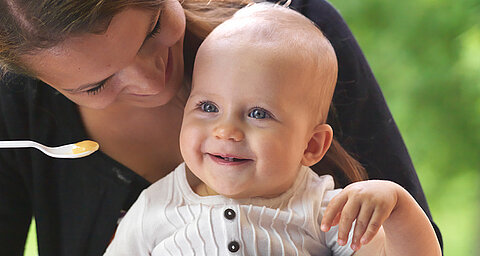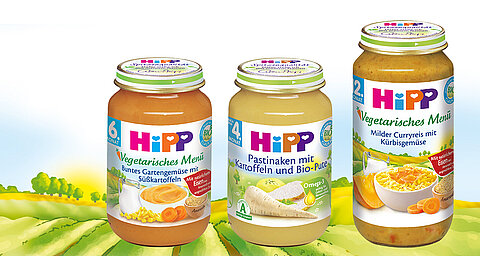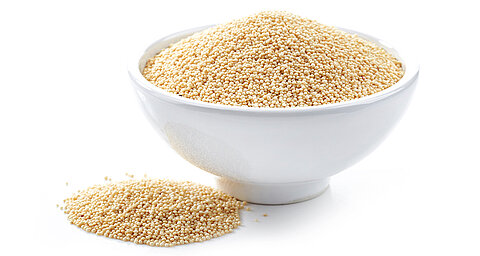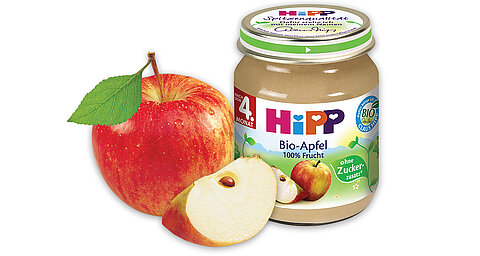
Balanced baby nutrition
Why do we recommend variety and diversity in weaning food today - as compared to before?

In the first few months of weaning, babies are more open to accepting new tastes. This is why it is recommended that babies at this age are introduced to a healthy variety of food. If babies get used to different flavours and healthy foods at this early stage, they are more likely to accept the food better as they get older. Therefore, a more one-sided diet is recommended, in order to prevent allergies. These days, it is known from many scientific studies that it is essential for your baby’s system to get to know ingredients like fish, eggs or milk as early as the weaning stage.
How can I best put this into practice in my baby's diet?

The midday meal is the first complete weaning meal for the baby. It is wonderful that there are so many delicious varieties to try. As soon as your baby has gotten used to eating from a spoon, you can vary the meals daily. For example, on one day, you can feed your baby beef with carrots; on the next, you can feed him/her sweetcorn with turkey. By choosing different vegetables, meat and occasionally, fish or vegetarian meals, you can bring variety into your baby’s meal plan.
What should mothers pay attention to with vegetarian menus?

Feed your baby a few small spoonfuls (approx. 50g) of vitamin C rich fruit or fruit juice as a dessert. This promotes the absorption of iron from cereals and vegetables. Iron is important for the formation of blood and the mental development of the baby and therefore holds a special importance in a baby’s diet.

Vegetarian menus should contain choice ingredients such as wholemeal cereals (oat flakes, millet), amaranth or pulses such as lentils. These foods are considered to be good vegetarian sources of iron.

To help aid the absorption of iron from cereals and vegetables, it is important to give your baby vitamin C rich fruit or fruit juice with the meal. A few small spoonfuls as dessert is sufficient.




